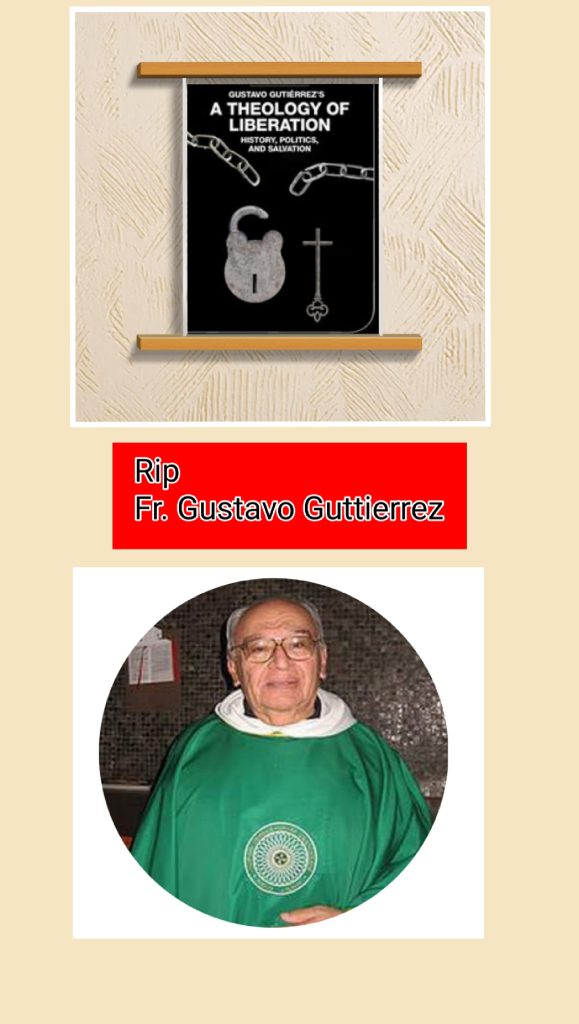P. A. Chacko S J

Peruvian Dominican priest Fr. Gustavo Gutiérrez Merino OP
revolutionized Christian theological world by his pathbreaking liberation theology.
His passing away on 22 October has left a great void in the galaxy of Catholic theologians.
Gutiérrez prophetically made alive the God of Exodus by making Christians understand the Divine entity as one who hears the cry of the poor and travels with the marginalised and the unliberated.
His Jesus Christ was the God-made man and liberator of humanity with a bias towards the downtrodden.
That meant analysing and understanding the structural causes poverty. Poverty, in his reflections, meant not as a divinely dictated situation where the poor have to live on charities or on the mercy of the rich and powerful.
He saw poverty in the Bible as “a scandalous condition inimical to human dignity and therefore contrary to the will of God.”
Socio-political and socio-economic analysis could highlight structural causes of injustice and poverty. Theologizing on these causes leads to ‘preferential option for the poor’ as imperative for the Church.
“How do we convey to the poor that God loves them?” he queries, and sees the Kingdom of God as inaugurated by Jesus the Liberator, in time and in history.
His theological breakthrough has given the Church a great push in its approach to the poor. The poor are not to be considered as recipients of some so-called beneficiaries who may control resources for private advantage. He saw poverty as the result of flawed and manipuated social institutions.
In 1974 Gutiérrez founded an institute whose thrust was “to use theology as a means of addressing contemporary social issues and educating through research, engagement with lawmakers, and collaboration with grassroots organizations.”
Gutiérrez advocated
“Liberation from every form of exploitation, the possibility of a more human and dignified life, the creation of a new humankind – all pass through this struggle.”
Though his immediate context was the Latin American situation, it has had worldwide implications. Building his praxis on the kenotic incarnation of Christ, he sees God’s intervention in history as denouncing imbalances and injustices in society and announcing the Kindom of God here and now as fellowship leading towards eternal salvific life.
“The building of a just society means overcoming every obstacle to the creation of authentic peace.” (Gustavo Gutiérrez Merino)